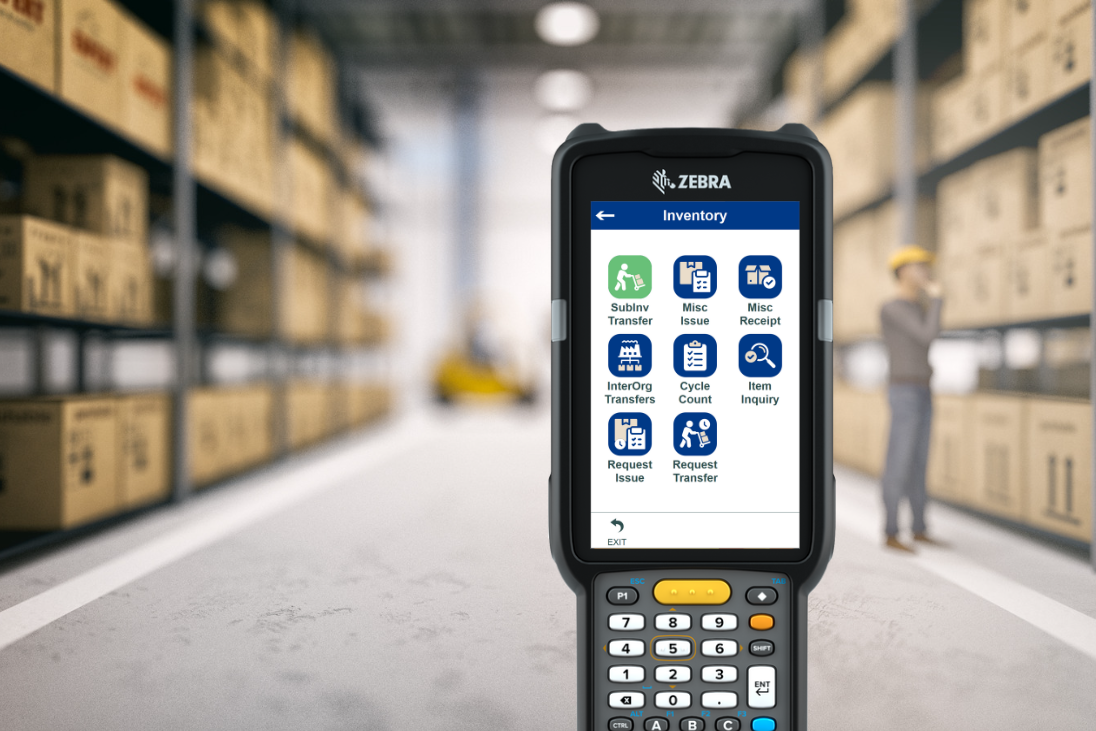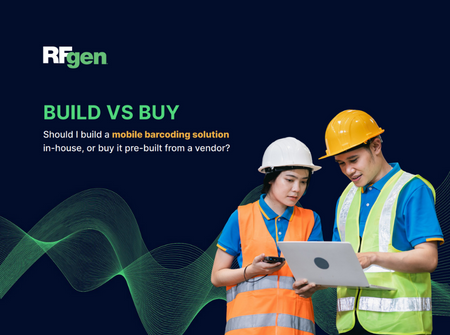Consulting, ERP Systems & Inventory Management Synergy
- Digital Transformation
- ERP Systems
- Inventory/Warehouse
In today’s complex, fast-paced supply chain, well-oiled operations are essential. With the need to pivot quickly, organizations must remain flexible to adapt to ever-changing conditions.
To make that happen, people, processes, and technology must gel into one symbiotic ecosystem. Unlocking the synergy between consulting services, ERP systems, and inventory management is the key to creating a powerhouse of efficiency.
But how are they related? How do they work together? How can managers, directors, and leadership leverage these harmonies to streamline operations and pave the way for strategic decision-making?
Just as organisms coexist and thrive through symbiotic relationships, let’s peel back the curtain to explore the ins and outs of this dynamic trio and how they interconnect.
The Confluence of Consulting, ERP Systems, and Inventory Management
Consulting: The Catalyst for Change
A consultant’s role is critical in helping an organization identify challenges, needs, and possible solutions. This can range from advising on strategies for enhancing an ERP platform to methods of streamlining stock control. They bridge the gap between technology and process.
Symbiosis with ERP: Advises on new ERP enhancements, changes, and expansions. They can also highlight gaps or areas for improvement. Together, consulting and ERP complement each other to improve your inventory management system.
Synergy with IM: Consultants bring outside perspective on how best to solve inventory challenges. Most likely, if you’re facing an issue in the warehouse, someone else has, too—and likely solved it. Together, consulting and inventory management improve efficiency.

Get Consulting Help Solving Inventory Challenges
LEARN MORE »ERP Systems: The Backbone of Operations
Enterprise Resource Planning (ERP) systems are software solutions designed to manage and integrate all aspects of an organization’s operations. These systems effectively streamline processes, improve data accuracy, and enable digital record-keeping, fostering better decision-making.
Symbiosis with IM: ERP centralizes inventory operations. Digital inventory records allow for transparency and reporting. Together, ERP systems and inventory management form the foundation of a digital supply chain.
Synergy with consulting: No software platform is magic by itself, so expert use is necessary to reap the ERP’s benefits and reach ROI. Together, ERP systems and consulting complement your supply chain.

Experts Help SunOpta Integrate Mobile Software in Multi-ERP Environment
READ NOW »Inventory Management: The Bread & Butter
A well-managed inventory is crucial for financial success. With an effective ERP system and mobile software in place, businesses can track inventory levels in real-time, streamline warehouse operations, reduce costs, and optimize stock levels. Inefficient inventory management is the quickest way to mire a business with high overhead costs.
Symbiosis with consulting: Your inventory procedures provide a baseline for the consultant to audit. By regularly adjusting and improving warehouse workflows with objective guidance, you can create a continuous cycle of optimization. Together, inventory management and consulting ensure—and if done efficiently, elevate—profits.
Synergy with ERP: Inventory handling is the way data gets updated in your ERP. Mobile inventory solutions take IM to the next level by enabling real-time transactions, reliable visibility, and dramatically greater throughput. Together, inventory management and ERP perpetuate the continuous, efficient flow of goods to customers.
Best Practices: Unlocking the Synergy
Creating synergy between the three pillars involves leveraging best practices for seamless operations. Enterprise software purchases often come with their own consulting services or implementation teams for that very reason.
Best practices include:
- Choosing the right consultant. The success of software implementation and operational continuity hinges on having competent experts. Extensive understanding of your industry and ERP are crucial.
- Select appropriate software for your ERP. Look for software solutions that are validated by or certified for your ERP. Other options put project success at risk, especially when something goes wrong.
- Implement effective inventory management strategies. Successful materials management requires efficient procedures that keep pace with demand, don’t get stuck in bottlenecks, and don’t weigh down the bottom line with excess carrying costs.
Overcoming Obstacles: Challenges and Solutions
Creating a synergy between consulting, ERP systems, and inventory management is not always a walk in the park. There can be hurdles along the way, but with strategic planning, these can be overcome.
Common challenges—and their solutions—include:
Resistance to Change
Implementing a new enterprise software or operational strategy can often meet internal opposition from employees. Change is difficult for a workforce set in its ways.
For major changes, like introducing a new ERP system or changing the way the warehouse workers handle inventory, resistance can be stiff.
However, this presents an ideal opportunity to bring in consulting synergy. A consultant can help facilitate a smooth transition by offering training and support. Communication and alignment between internal and consulting resources—and your business goals—are essential to effective change management.
By preparing employees for the change and supporting them through the transition, businesses can reduce resistance and successfully implement new technologies.

5 Best Practices for Selling Your Boss on New Inventory Software
READ NOW »High Implementation Costs
ERP systems can be expensive. For many organizations, it’s a steep hill to climb with a lot of risk. However, the long-term benefits of improved efficiency, reduced overhead, and better decision-making outweigh the initial costs.
The key here is to make that steep slope gentler to climb. This can be achieved through careful budgeting, phased implementation, and the use of cost-effective ERP solutions.
Again, consultants can assist in choosing the most beneficial solution for your operational needs. By spreading the cost over time and focusing on long-term ROI, the uphill climb becomes more manageable.
As far as information management goes, additional software solutions like a mobile inventory platform can accelerate ROI and extend the lifespan of your ERP investment. This will help offset the high financial burden of implementing a large enterprise solution.

Investing in Warehouse Innovation: How to Evaluate Cost-Savings and ROI
DOWNLOAD NOW »System-Business Misalignment
As more organizations move to cloud-based ERP platforms, many are discovering challenges in aligning discrepancies between software workflows with business processes.
Cloud ERPs running on PaaS are more secure and stable, but impose process standardization on its users. That means many businesses are forced to re-configure their business process to match the way their software works—like trying to fit a square peg into a not-quite-square hole.
With intricate operational demands, like those found in inventory management, that becomes no small undertaking. This imperfect alignment leads to disruption and inefficiency.
Consulting services offer a path forward. By leveraging their expertise, they can help you optimize processes with minimal negative impact to your operations.
Mobile software can help, too. When it comes to custom or legacy capabilities not found in your cloud ERP, you don’t have to go without them. Instead, consider leaning on mobile automation to quickly create tailor-made functionality.
In this area, symbiosis between consulting services, ERP systems, and inventory software is notable.

BUILD OR BUY? When to build mobile software in-house and went to buy it pre-built.
DOWNLOAD NOW »Data Security Concerns
Making significant changes to your technical environment always brings up the question of cybersecurity:
- What vulnerabilities will the new software have?
- Are there measures we should take to safeguard our tech stack?
- How will it protect our data—and that of our customers?
ERP systems centralize financial data, which can raise security concerns. Employing robust cybersecurity measures and scheduled system audits can assure data protection. Bring in a consultant to analyze potential shortcomings regularly.
When it comes to mobile inventory software, look for a platform specially hardened to protect your ERP data from outside threats.

DON’T MISS: Key Security Risks of Legacy Inventory Software
READ NOW »The Real-World Impact: Case Studies
To truly appreciate the synergy trio, let’s explore some real-world success stories where this integration led to substantial positive outcomes:
Consulting Optimizes Software Implementation for ERP
When consumer packaged goods company, Melaleuca Wellness Company, implemented mobile data collection software for JD Edwards, the software provider’s consulting services made the difference. By advising the customer on a best-fit solution that matches their budget and needs, Melaleuca improved inventory efficiency and accuracy for inventory control.

Success Story: Melaleuca Gets a Healthier Warehouse with Digital Inventory
READ THE FULL STORY »Enhancing ERP Capabilities with Enterprise Mobility
Boyd Corporation was migrating multiple legacy ERP instances into one Oracle Cloud environment. Only, they wanted to keep custom functionality that wouldn’t carry over to the new platform. A combination of expert consulting and mobile inventory control facilitated a smooth transition—without loss of custom workflows.
Success Story: Boyd Corp Migrates to Cloud, Keeps Unique Processes
READ THE FULL STORY »Digital Transformation for Inventory Management
Tired of inefficient manual processes in the warehouse, aerospace manufacturer CarlisleIT implemented mobile barcoding technology for SAP. The new solution quickly drove inventory accuracy to over 99%, boosting efficiency by 40% and reducing staffing costs.
And it took the right mobile software integrated into the ERP, the implementation of which was guided by experienced consultants familiar with supply chain best practices.

Success Story: CarlisleIT Transforms Manufacturing Inventory
READ THE FULL STORY »The Future: Consulting, ERP, and Inventory Management
The symbiosis between consulting, ERP systems, and inventory management is not a static concept. It evolves with technological advancements and changing business environments. So, what does the future hold?
AI-Powered ERP Software Systems
Artificial Intelligence (AI) is set to revolutionize software of all kinds. ERP software is no exception. Many of the next-gen ERP platforms like Oracle Fusion Cloud, SAP S/4HANA Cloud, and Microsoft D365 SCM already leverage intelligent software automation and analytics. With evolving AI capabilities, ERP systems will continue to deliver new levels of automation and predictive analysis that empower proactive inventory management and decision-making.
Virtual Consulting
The world quickly became comfortable with remote virtual meetings during the COVID-19 pandemic. As remote work became increasingly common, virtual consulting rose in prevalence.
Now, organizations can tap into a global pool of consultants and consultancy firms, ensuring the best expertise unimpeded by geographical boundaries. Some software providers may even be able to offer remote installation and deployment.
IoT and Inventory Management
The Internet of Things (IoT) will continue to further streamline inventory control. By using IoT devices, RFID, and industrial hardware integration, distributors and manufacturers can automate data collection for end-to-end materials management.
Real-time inventory management directly translates to higher throughput, greater visibility, enhanced quality, and expanded profit margins.
Leveraging the Synergistic Triad
As we navigate the intricate dance of business operations, the synergy between consulting, ERP systems, and inventory management emerges as a key to unlocking unprecedented efficiency and growth. Understanding and leveraging this tightly-knit symbiosis can propel supply chains to new heights. The future is ripe with exciting advancements, but proven strategies still carry the day.
To learn more, feel free to reach out to one of our knowledgeable supply chain experts with any questions or thoughts.
FAQs
A. The synergy lies in integrating these components working symbiotically to enhance operational efficiency. Consultants guide the implementation of ERP systems, which streamline operations, in turn improving inventory management.
Q. Why is consulting important in ERP implementation?
A. ERP systems provide enterprise-level financial alignment to improve organizational reporting and decision-making. For the supply chain, ERP software enables digital records for inventory control and manufacturing.
Q. What challenges can businesses face when creating synergy between these components?
A. Common challenges include resistance to change, high implementation costs, system-business misalignment, and data security concerns. However, these can be mitigated with proper planning, budgeting, and cybersecurity measures.
Q. How is the future of consulting, ERP systems, and inventory management shaping up?
A. The future is promising with AI-powered ERP systems for greater automation and predictive analysis, virtual consulting for global expertise access, and IoT-enhanced inventory management for real-time data collection and tracking.
Q. What is the role of mobile software in this symbiosis?
A. Mobile software providers can offer consulting expertise at the confluence of ERP systems and inventory management. As for the software itself, mobile apps and process automation enhance inventory control and augment ERP capabilities.




